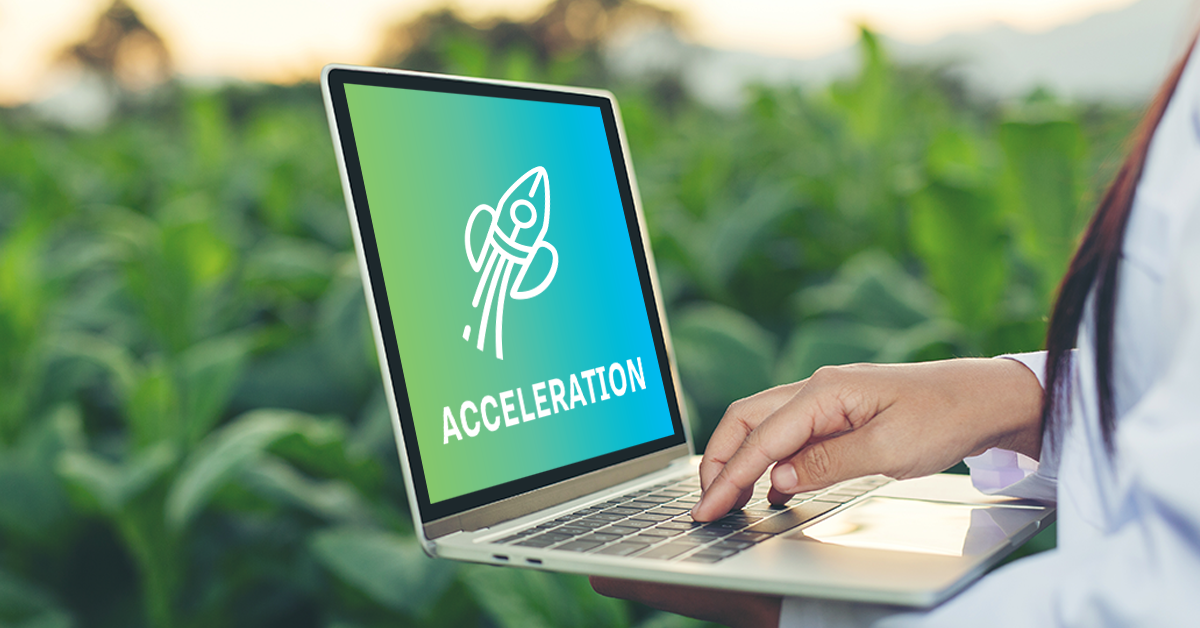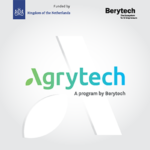
Berytech wrapped the second of its three-phase Agrytech Accelerator Program after four months filled with challenges and triumphs for the teams enrolled in it.
Phase II focused on operations, product development, business modeling, and go-to-market. Experts advised startups on how to build and launch an MVP. Founders learned about product-market fit, the lean startup methodology, how to communicate to the right audience, and how to develop a sustainable financial structure to secure the stability and growth of the business.
Phase 3 – Growth Phase
At the end of this Acceleration Phase, the Batch 3 teams were shortlisted to join the third and last phase where they will receive support in scaling, including hands-on fundraising support in negotiation, legal, terms sheets, and market access. Teams will test and validate their Apps and service solutions with the support provided to them by Berytech through the program while receiving access to matching grants totaling up to $20,000. They will also receive support through MIT’s Confideo Venture Mentoring Services approach, where Berytech mobilizes a group of Senior Executives from leading companies in Lebanon, the Kingdom of The Netherlands, and internationally.
Teams shortlisted for Phase 3 are:
- Foodsight, a user-friendly online platform aiming to find solutions to food safety
- FX Bar, a startup working on healthy on-the-go wholesome snacks.
- GROUND ‐ Urban Agriculture, a startup working on developing an urban agriculture technology.
- Karya, a mobile application allowing users to explore experiential tourist activities with local small-scale producers in rural areas.
- LUXEED Robotics, a startup developing Ultron, the first chemical-free weeding robot in the MENA region.
- Mezzmix, a startup working on developing a new way to consume Garlic paste.
- Smart Land, a startup working on an automated irrigation system.
- TheBeeHaus, an online platform that allows the beekeepers to monitor and track bee progress.
Phase 2 – Building an MVP
The recently wrapped second phase delivered a mix of workshops and follow up clinics to the teams to support them in developing the Minimum Viable Product (MVP) and test it with early adopters.
Project Management & Co-operational excellence, delivered by Gaby Awad and Mario Ramadan, introduced the core principles required to set up and manage a business in an agile mindset giving the entrepreneurs a high-level understanding of Lean and Agile principles and practices, how to break down work packages into actionable items, and how to measure earned value.
With the IP workshop, Amal Abdallah from SABA IP went through the necessary information about the importance of patents, trademarks, copyrights, trade secrets, and various concepts related to IPR (Intellectual Property Rights). She also covered the importance of setting an Intellectual Property Strategy at an early stage to protect and maintain business value. The startups also conducted a Prior Art Search with Al Yafi Group to understand whether their products are patentable.
In the general Marketing workshop, Joe Moarkesh delivered practical examples and cases that reflect the world standard and most recent theories in marketing that can help startups introduce and boost their startup. Founders learned about different successful and failing strategies that were implemented by local, regional, and international businesses. They also covered theories on best practices, showcasing real-life scenarios for companies that applied or failed to perform these practices, and how different Go-To-Market strategies affected business sales and people’s perception towards brands. Chadi Snaifer also followed up on the startups in one-on-one clinics to help them set their strategies.
Sales trainer, Gaby Awad, helped founders develop a sales strategy for their startup. They learned how to create an exceptional customer experience, showcase their differentiator to their potential clients, set up a brand promise, and develop an efficient sales cycle to grow their business.
In the finance workshop, Berytech’s Joelle Atallah provided founders with the required tools and the needed knowledge to read a projected income statement based on the business plan. They learned about balance sheets, income statements, and the importance of integrating all financial requirements including assets when preparing for the investment plan. This session was followed by one-on-one clinics that lead to the development of an economic feasibility plan that helped startups assess their business model and projected performance in different markets.
Gaby Awad delivered the Strategic Pricing workshop providing foundational knowledge to founders on how to build and experiment with different pricing strategies that can resonate with their target audience.
With the ‘Raising Capital’ workshop, Constantin Salemeh highlighted the different types and sources of financing, valuation techniques, investment term sheets and how to approach and Investor, followed by two raising capital sessions.
The pitching workshop provided pointers and best practices that help startups prepare their pitches for different audiences. With Andre Abi Awad, entrepreneurs learned how to sell their product, their company, and themselves and how to develop different pitch decks to share with diverse individuals at any point in time.
Last but not least, Ororus Advisors provided a general overview of the different registration structures, taxation, and the process of setting up a business in Lebanon in the Legal Workshop.
Startups also received product planning clinics, which allowed them to mold and shape their products based on the validations conducted during phase 1. Mario Ramadan and Salah Awad from Berytech helped them assess and plan the development and deployment of their products to ensure that the products are scalable and have the potential to sustain themselves.
Startups received a governance workshop with Constantin Salameh which described to them the best practices to set and govern a company.
Startups learned about how to build and manage social media campaigns from Lebanese Memes.
Innovating for the Future
As the sector faces compound challenges, agri-food entrepreneurs in Lebanon are capitalizing on the innovative aspect of their businesses. “The innovations being developed in Lebanon are ultimately helping generate jobs and improve the agri-food sector,” comments Mario Ramadan, Accelerator Program Manager. “From technology-based solutions to innovative food and beverage products, the teams in Agrytech’s Batch 3 are solving challenges across the value chain; we are now going to train them to become investment-ready in the next phase.”
The Agrytech Accelerator Program
 Through the third edition of the Agrytech Accelerator Program and with support from the Kingdom of The Netherlands, Berytech continues to source the top startups with disruptive innovations in the Agri-Food sector and provide them with the adequate technical and business resources as well as community support to scale their ideas into successful businesses with global impact.
Through the third edition of the Agrytech Accelerator Program and with support from the Kingdom of The Netherlands, Berytech continues to source the top startups with disruptive innovations in the Agri-Food sector and provide them with the adequate technical and business resources as well as community support to scale their ideas into successful businesses with global impact.
Berytech developed the Agrytech accelerator as a yearly program which includes a validation of market phase over two-months, an acceleration phase – where the startups work for 4 months on building their minimum viable product (MVP) in order to get traction, and finally, a 6-month incubation and growth phase, from which they graduate investment-ready, and with matching capital. Learn more about the Agrytech Accelerator Program.







